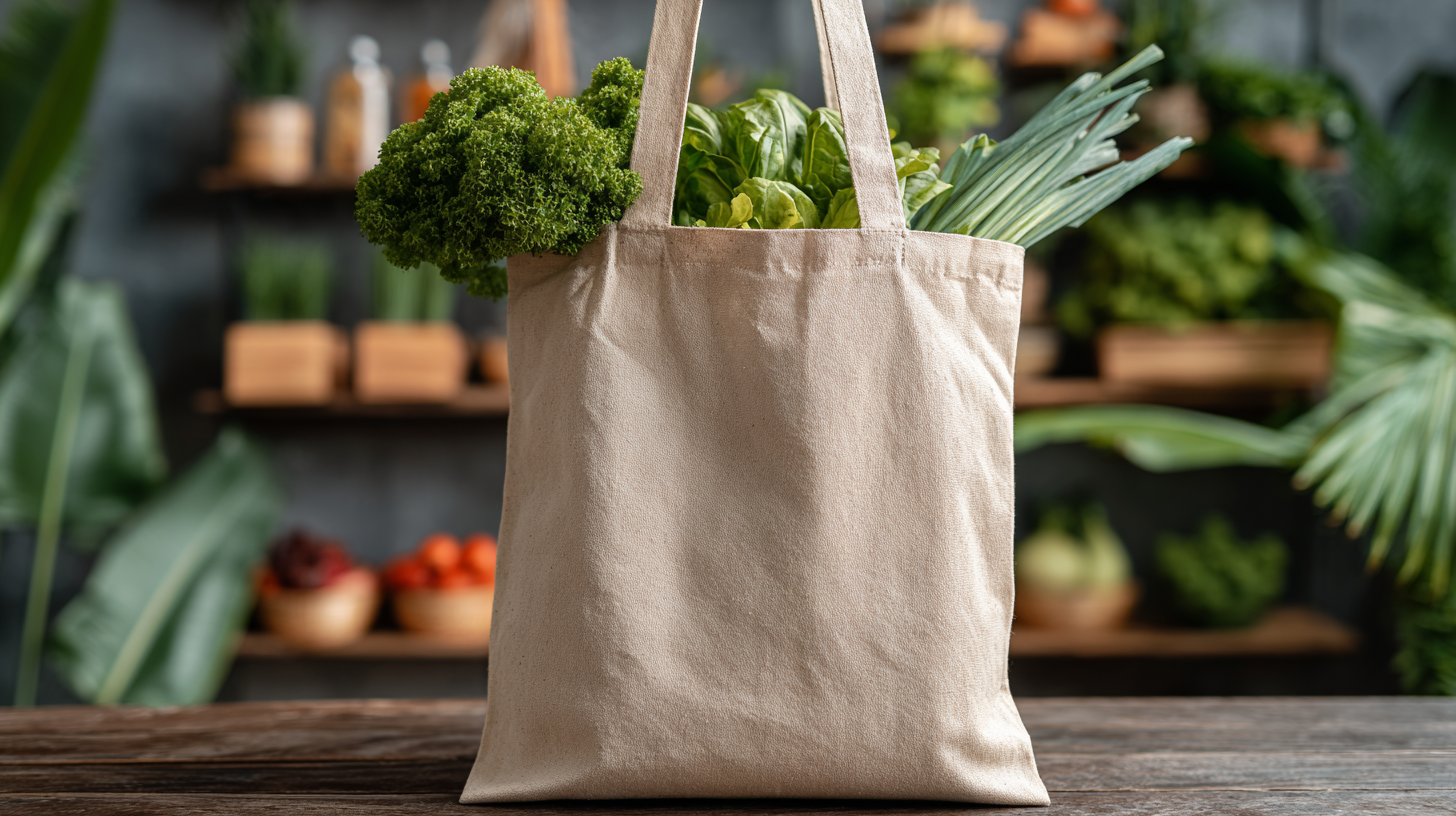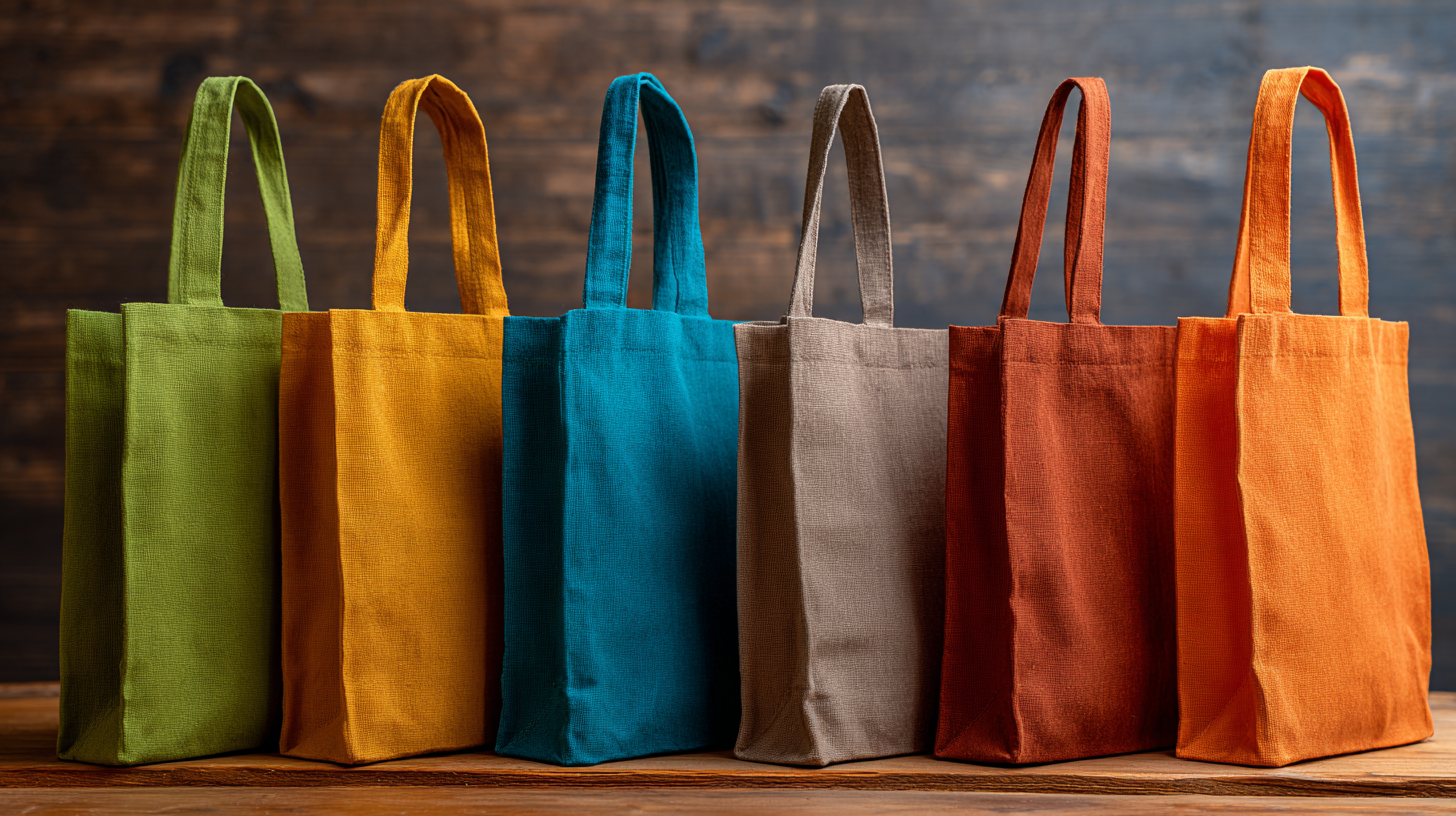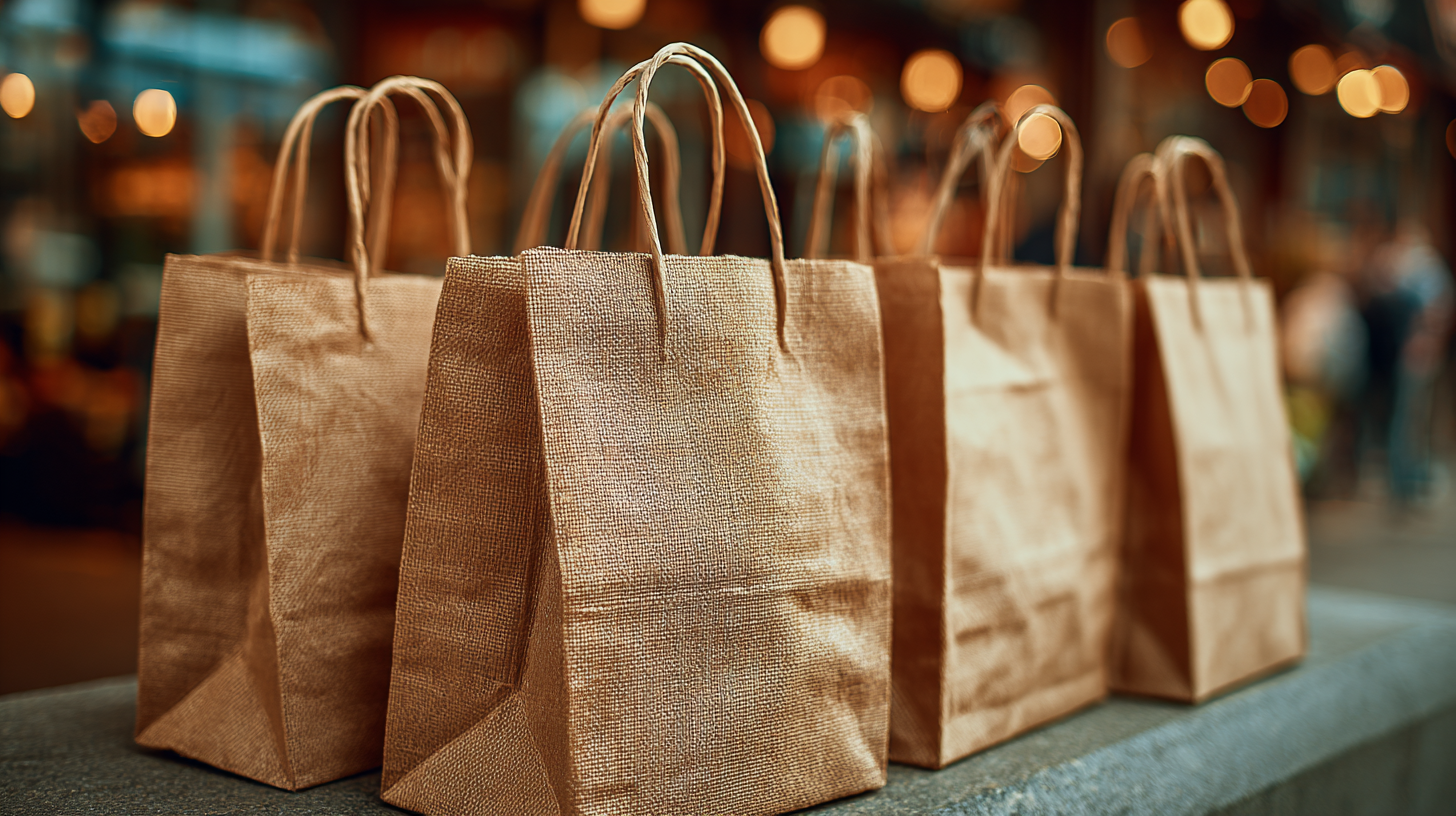In recent years, the demand for eco shopping bags has surged, driven by a growing awareness of environmental issues and the push for sustainability in consumer behavior. According to a report by Grand View Research, the global reusable bags market is expected to reach USD 5.6 billion by 2025, growing at a compound annual growth rate (CAGR) of 4.6% from 2019 to 2025. This shift reflects not only a significant change in consumer preferences but also an urgent need for retailers to identify reliable suppliers that can provide high-quality, sustainable products. As eco shopping bags become a staple for eco-conscious shoppers, the importance of sourcing these bags from trustworthy manufacturers cannot be overstated. By doing so, businesses can not only meet consumer demand but also contribute to the global movement towards a more sustainable future. In this blog, we'll explore how to identify reliable suppliers for eco shopping bags, ensuring that your choices align with both quality and environmental goals.

When it comes to sourcing eco shopping bags, identifying reliable suppliers is crucial for ensuring quality and sustainability. One key characteristic of trustworthy suppliers is their commitment to environmentally friendly practices. According to a 2022 report by the Global Sustainability Research Institute, about 75% of consumers prefer brands that utilize sustainable materials and ethical manufacturing processes. Suppliers that provide transparency about their sourcing materials and production methods often stand out as reliable choices, as this builds trust with eco-conscious consumers.
Another important factor is compliance with industry certifications and standards. Suppliers who hold certifications such as the Global Organic Textile Standard (GOTS) or the OEKO-TEX certification demonstrate that their products meet stringent environmental and safety criteria. A 2023 survey conducted by EcoBag Manufacturers Association revealed that 68% of businesses prioritize selecting suppliers who can provide proof of such certifications. This not only reflects the supplier's commitment to quality but also aligns with increasing regulatory scrutiny in the eco-products sector. Following these guidelines can help businesses choose suppliers who are not only reliable but also aligned with sustainable values.

In the quest for sustainable shopping solutions, identifying reliable suppliers of eco-friendly products is paramount. A key aspect of this identification process is understanding the importance of certifications. According to a report by the Global Sustainability Forum, over 70% of consumers prioritize certified eco-friendly products, indicating a shift towards responsible purchasing habits. Certifications such as GOTS (Global Organic Textile Standard) and FSC (Forest Stewardship Council) provide assurance that products meet strict environmental and social standards, making them essential for any eco-conscious shopper.
Furthermore, certifications not only enhance consumer trust but also stimulate market demand for sustainable products. Data from the Environmental Protection Agency shows that companies with recognized eco-certifications tend to outperform their unverified competitors, with a reported 20% increase in sales. This correlation underscores the importance of suppliers who adhere to recognized certification standards, as they contribute to a sustainable business model while aligning with consumer values. By prioritizing suppliers with legitimate certifications, businesses and consumers alike can play a crucial role in promoting environmental responsibility.

In today's environmentally conscious market, selecting reliable suppliers for eco shopping bags goes beyond mere product quality; it requires a deep understanding of the supply chain. Transparency is crucial in evaluating suppliers, as it allows businesses and consumers to trace the origins of materials and the processes involved in production. Look for suppliers who openly share information about their sourcing practices and production facilities, as this commitment to transparency reflects their dedication to environmental responsibility.
Sustainability metrics also play a significant role in assessing potential suppliers. Consider their certifications, such as Fair Trade or the Global Organic Textile Standard (GOTS), which indicate adherence to stringent environmental and social standards. Analyze their practices regarding resource usage, waste management, and energy consumption. Suppliers who actively employ eco-friendly manufacturing processes and materials not only contribute to a reduced carbon footprint but also enhance the overall integrity of the eco shopping bags they produce. By prioritizing suppliers that align with these transparency and sustainability metrics, businesses can foster a more responsible and ethical supply chain.
| Supplier Name | Eco-Friendly Certification | Sustainability Score (1-10) | Transparency Level (%) | Delivery Time (Days) |
|---|---|---|---|---|
| Supplier A | ISO 14001 | 9 | 85 | 15 |
| Supplier B | GOTS | 8 | 90 | 20 |
| Supplier C | Fair Trade | 7 | 80 | 25 |
| Supplier D | B Corp | 10 | 95 | 18 |
| Supplier E | Cradle to Cradle | 9 | 88 | 22 |
When it comes to sourcing eco-friendly shopping bags, assessing supplier reputation is critical to ensuring you partner with reliable manufacturers. Reviews and ratings play a significant role in this process. According to a report by Nielsen, 70% of consumers trust online reviews as much as personal recommendations. Look for suppliers with consistently high ratings across multiple platforms, such as Google Reviews or Trustpilot. Industry awards can also highlight reputable suppliers; for example, the Eco Excellence Awards recognizes companies that demonstrate exceptional commitment to sustainability.
Tips: Check the supplier's website for case studies and testimonials, as these can provide deeper insights into their reliability and quality.
In addition to online reviews, consider engaging with the supplier’s past clients. A survey conducted by Dun & Bradstreet found that 88% of organizations prioritize vendor reference checks as essential for risk management. Talking to other businesses will give you an honest assessment of the supplier's strengths and weaknesses, particularly regarding the quality of their eco products. Furthermore, explore any certifications the supplier may have, such as ISO 14001, which indicates a commitment to environmental management.
Tips: Use social media platforms to connect with industry peers and gather informal feedback on suppliers you’re considering.
When it comes to choosing eco shopping bags, finding the right balance between cost and quality is crucial for both businesses and consumers. Many suppliers offer a wide range of options, but lower prices do not always equate to better value. It’s essential to evaluate what materials are being used in the production of the bags. For instance, organic cotton or recycled materials may come at a higher price, but they often provide a more durable and sustainable solution compared to cheaper, low-quality alternatives made from non-recyclable plastics.
Understanding production processes can also help businesses justify costs. Ethical and sustainable suppliers often invest in fair labor practices and environmental stewardship, which can lead to higher prices. However, these investments ensure that customers receive a product that aligns with their eco-friendly values. Therefore, companies should consider not just the upfront costs, but also the long-term benefits of investing in higher-quality eco bags that can enhance their brand reputation and meet consumer expectations for sustainability.